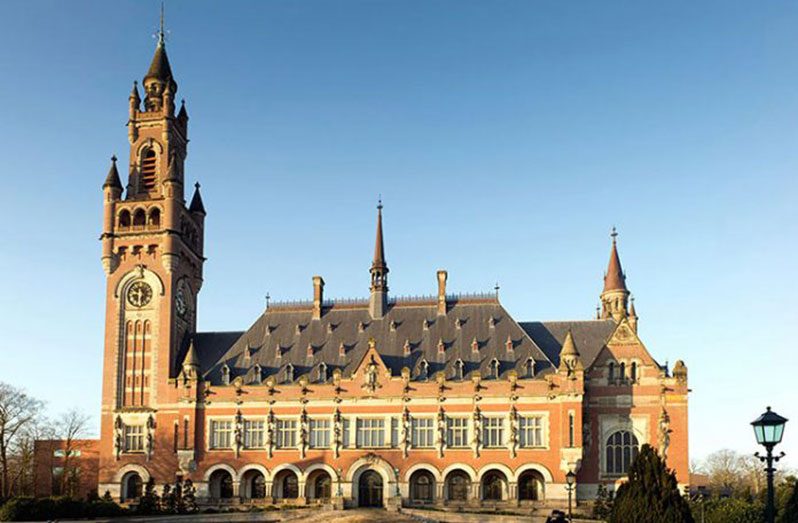THE International Court of Justice (ICJ) –the highest court in the world – will hold a public hearing on preliminary objections raised by Venezuela in the border controversy case with Guyana from November 17 to 22, at the Peace Palace in The Hague, Netherlands.
The ICJ has issued a notice informing the Government of Guyana that “the hearing will be devoted to the preliminary objections raised by Venezuela.”
Venezuela had submitted preliminary objections to the admissibility of the case before the court regarding the Arbitral Award of October 3, 1899 (Guyana v. Venezuela).
During the hearing, both countries will lead oral arguments regarding the objections. The ICJ will later deliver its ruling.
Guyana had moved to the ICJ with its case in March 2018, challenging the non-participating Bolivarian Republic of Venezuela over its disagreement on the legal validity and binding effect of the October 3, 1899 Award.
Venezuela had maintained that the ICJ was without jurisdiction to hear the case and had not participated in the matter.
However, in a December 18, 2020, 12-4 majority ruling, the ICJ upheld that it has jurisdiction to entertain Guyana’s contention concerning the validity of the 1899 Award about the frontier between British Guiana and Venezuela, and the related question of the definitive settlement of the land boundary.
The ICJ pointed out too, that both Guyana and Venezuela had agreed to the 1966 Geneva Agreement which showed that both parties had accepted the possibility of the controversy being resolved by means of judicial settlement.
After a case management meeting, the ICJ had set time limits for Guyana and Venezuela to file written pleadings on the merits of the case.
Guyana met its March 8, 2022, deadline to submit its Memorial on the merits of its case to the court. Venezuela, on the other hand, submitted preliminary objections.
As a result, the ICJ allowed for such an objection to be lodged and considered by the court, and, as a consequence, the proceedings on the merits of the case were suspended until the court rules on the preliminary objections.
Guyana maintains that a judicial settlement of the matter is the only recourse remaining as it has exhausted all other measures.
As recently as October 4, the United States government reaffirmed the validity of the 1899 Arbitral Award and solidified its support for a “peaceful resolution” of the Guyana-Venezuela border controversy through the proper court, if there is any deviation from that Award.
Guyana is seeking to obtain a final and binding judgement that the 1899 Arbitral Award, which established the location of the land boundary between then British Guiana and Venezuela, remains valid, and that the Essequibo region belongs to Guyana, and not Venezuela.




.jpg)










